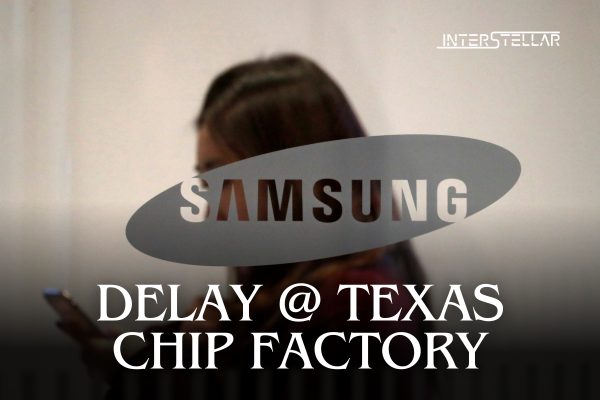Samsung Delays Chipmaking Equipment for Texas Factory Amid Customer Struggles
Samsung Electronics has postponed the delivery of critical chipmaking equipment from ASML for its new $17 billion factory in Taylor, Texas, due to a lack of major customers, according to sources familiar with the situation. This delay impacts Samsung’s ambitious plans to expand its chip manufacturing beyond memory chips into the contract chipmaking market, which is dominated by Taiwan’s TSMC.
In addition to delaying orders for ASML’s advanced extreme ultraviolet (EUV) lithography machines, Samsung has also paused orders from other suppliers, leading some to redeploy staff elsewhere. These delays are a significant setback for Samsung, whose chairman, Jay Y. Lee, has targeted contract chip manufacturing as a key growth area.
Setbacks for Samsung’s Foundry Business
ASML’s EUV machines, essential for producing advanced chips used in smartphones and AI servers, are among the most expensive in the chipmaking industry, costing about $200 million each. The delay in their delivery is part of broader challenges Samsung faces as it lags behind its competitors. While TSMC continues to strengthen its position, accounting for 61.7% of the market in the first quarter of 2024, Samsung’s market share has fallen to just 11% over the past five years.
Despite announcing earlier this year that production at the Texas plant would start in 2026 (delayed from an initial 2024 target), sources suggest the project could face further delays without new major clients. Analysts warn that the plant may risk becoming a “stranded asset” if these challenges persist.
Broader Implications for the Chip Industry
The delay in Samsung’s Taylor project mirrors industry-wide challenges. ASML recently reduced its 2025 sales forecast, citing slower-than-expected demand outside the booming AI sector, as well as delayed chip fabs from key customers. This has been compounded by Intel’s decision to cut capital spending for 2025, further impacting ASML’s outlook.
In contrast, TSMC has reported strong progress with its U.S. expansion, including its Arizona fab set to begin volume production in 2025, driven by strong commitments from U.S. clients.
Meanwhile, Samsung is grappling with difficulties in its South Korean factories as well, particularly low production yields for its advanced 3-nanometer chips. The company has also delayed investment in new foundry lines in Pyeongtaek, reflecting broader challenges in keeping pace with TSMC and SK Hynix.
As Samsung faces these hurdles, it is also losing its lead in the memory chip market to SK Hynix, particularly in the production of high-bandwidth memory (HBM) chips used in AI applications.





